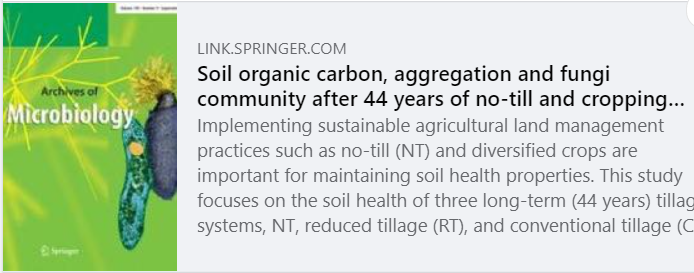New research led by agronomy Professor Chuck Rice at Kansas State University shines light on tillage practices that affect soil health.
The team looked at soil from fields growing various combinations of wheat and soybean crops with three types of tillage systems—no-till, reduced till, and conventional tillage. The extensive dataset spans analysis from 1975 to 2018.
Their key finding: “No-till increased soil carbon content even after 44 years of cultivation.”
What does this mean for farmers? “The results of this study imply long-term conservation practices in higher intense cropping system improve soil quality, which increase crop resiliency and potentially mitigate future weather volatilities,” said the authors of the study.
The research was funded by U.S. National Science Foundation EPSCoR RII Track-1 award #1656006 and the U.S. Department of Agriculture.
Lin. J.S., et. al. “Soil organic carbon, aggregation and fungi community after 44 years of no‑till and cropping systems in the Central Great Plains, USA,” Archives of Microbiology (2023) 205:84. https://doi.org/10.1007/s00203-023-03421-2

